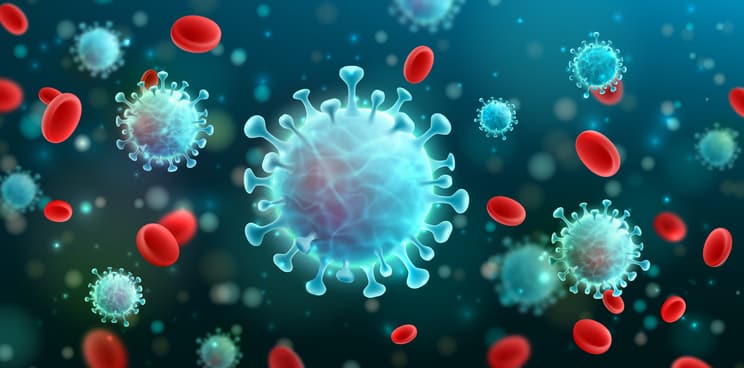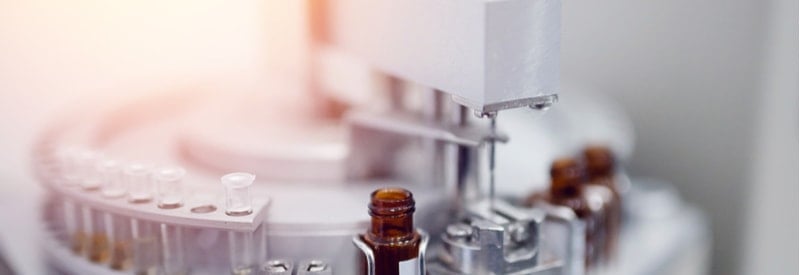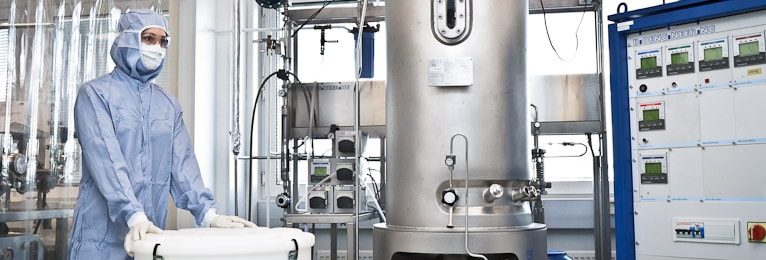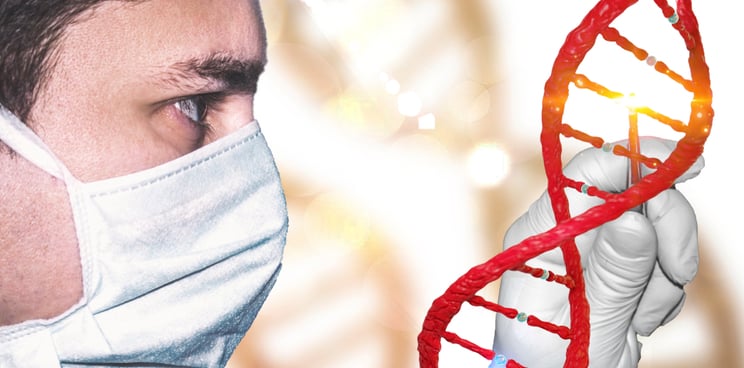Newsletter Signup - Under Article / In Page
"*" indicates required fields
The gene therapy market is booming. Viral vectors, the key delivery systems for gene therapies, are playing an increasing role in the development of biologics. But the growing need for viral vectors and their plasmid building blocks have resulted in a manufacturing bottleneck. Can contract manufacturing organizations cope with the rising demand?
In 2019, Zolgensma, a gene therapy to treat spinal muscular atrophy in children under the age of two was approved by the FDA. Other notable gene therapy approvals of the past few years include Luxturna, Yescarta, Kymriah, and Imlygic, and the list continues to grow. In fact, the FDA estimates that by 2025, it will be approving 10 to 20 cell and gene therapy products annually.
Thanks to the development of new virus backbone designs and mechanisms of action, gene therapy has become significantly safer and more effective. Especially when combined with other types of immuno-oncology drugs, such as checkpoint inhibitors, oncolytic virus therapy is regarded as a promising tool to attack cancer cells that evade the patient’s own immune response.
Overall, the range of diseases addressed with gene therapies is expanding, with hundreds of candidates in development, and many being evaluated in clinical trials. This has resulted in larger patient populations as gene therapies are no longer only targeting rare diseases. In addition, there has been a transition from local drug administration to systemic delivery, which necessitates larger therapeutic doses.
A bright future for gene therapy?

So can we expect a bright future for gene therapy? Yes, but only if manufacturing capacities can keep up with the growing demand. To make gene therapy available for more widespread use, the cost of goods must go down; by expanding production capacity, introducing scalable production methods, and tailoring manufacturing systems to viral vectors.
The high diversity and complexity of viruses used in gene therapy and the strict regulations required for good manufacturing practice (GMP) production limit the number of companies that are willing to take the challenge. And it’s not easy for newcomers to get on board, as the expertise required in viral vector GMP production takes years to build.
Virus diversity

Virus manufacturing for gene therapy is probably the most complex and resource-intensive process in biologics manufacturing. Eero Mustalahti, Sales Manager at Biovian — a Finnish company that has spearheaded biologics contract manufacturing services since 2003 — told us: “It’s not just one, slightly variable product that can be produced on a standardized platform, like, for example, therapeutic antibodies. Viruses used in gene therapy are much more diverse, and require individually tailored manufacturing processes.”
Growing pains: scalability

Typically when moving from the preclinical to the clinical phase, and ultimately, to the commercial stage, scalability becomes an issue. For example, scaling up often requires switching virus expression hosts from adherent to suspension cell lines.
To meet the growing demand, Biovian has doubled its capacity for GMP viral vector manufacturing. The company provides a state-of-the-art production facility that allows for different viral vector production scenarios with a focus on adeno-associated virus (AAV) and adenovirus (AV) production.

“The expansion has enabled us to add a 200L bioreactor, equipping us to continue to serve clients as they take gene therapies into late-phase clinical trials and onto the market,” said Antti Nieminen, CEO of Biovian.
“It provides the space we need for an even higher technical variety of bioreactors and cell factories to flexibly address the growing demand for large scale production. Additionally, our growth and investments in viral production continue.”
Purification methods must be equally scalable, which is why Biovian are shifting away from centrifugation procedures, and toward chromatographic methods. And with each scale-up step, strict quality control assays are mandatory to ensure that product quality remains unchanged.
“To avoid delays and additional costs associated with late changes in production technologies, it is essential to have a good understanding of the required scale right from the start and design the process accordingly,” Nieminen added.
More challenges: formulation, fill, and finish

Down-stream processing and formulation conditions must be matched carefully to the features of each virus. The manufacturing process of adenoviruses, for example, is very sensitive to stress, temperature, and environmental factors that can lead to aggregation, affecting product yield and quality.
Nieminen explained: “Aseptic filling of live viral vectors, container integrity, and design of packaging compatible with storage at –70 degrees Celsius, are critical to meet GMP requirements, and often challenging steps.”
Another sign of Biovian’s continuing investment mode is the opening of an aseptic filling line for recombinant proteins and plasmid DNA. This has added to its existing biosafety level 1 and 2 viral vector fill and finish capabilities. The new filling line is fully automated and supports batches of up to 10,000 vials. To ensure aseptic quality without sacrificing process flexibility, it features a restricted-access barrier system.
Safety first: quality assurance and quality control
Not surprisingly, quality assurance and quality control (QA/QC) are at the heart of GMP production. Biovian has its own team of qualified persons (QPs), who ensure their clients’ investigational, medicinal products are released uncomplicatedly for clinical trials or onto the market.
With its own EMA-GMP compliant QA/QC site, the company has the capacity for analytical tests on product identity, purity, infectivity, endotoxin levels, and bioburden, as well as physical, protein-based, and cell-based assays.
“Being able to analyze all our samples in-house makes a huge difference,” Nieminen pointed out. “Not only does it speed up process development because we don’t waste time on tedious cross-audits or responsibility issues between different parties, but we also minimize the risks related to sample transfer logistics.”
A one-stop-shop for virus production

The majority of Biovian’s customers are small to mid-size biotech companies that rely on timely progress toward clinical trials. To them, a service offering that covers the entire development process can make all the difference, as it speeds up the entire process and minimizes the risk for delays and additional cost.
“A key feature of our flexible service offering is that we take full oversight of each project to ensure seamless integration from early development to the clinic and beyond. Our customers greatly appreciate this unique, one-stop-shop concept: from gene to finished vial”, Mustalahti added.
Keeping the personal touch
So what changes lie ahead for Biovian? “Certainly, our goal is to become the leading global player in the contract manufacturing of biologics. At the same time, we want to keep our company culture alive. We believe that personal contact, friendliness, and responsibility are essential in customer relationships. This is what we call Manufacturing Happiness,” Nieminen concluded.
Learn more about Biovian’s expertise and how their one-stop-shop approach addresses current bottlenecks in GMP-compliant manufacturing of viruses and other biologics for gene therapy.
Images via Shutterstock.com and Biovian
This article was originally published in September 2018 and has since been updated.






